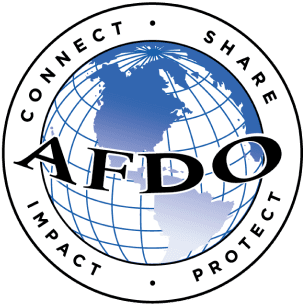Laws and Regulations Committee Update – May 24, 2019
Federal Register
Animal and Plant Health Inspection Service
Notices
Environmental Assessments; Availability, etc.:
Release of Aphalara Itadori for the Biological Control of Japanese, Giant, and Bohemian Knotweeds
Filed on: 05/24/2019 at 8:45 am Scheduled Pub. Date: 05/28/2019
FR Document: 2019-11026 PDF 4 Pages (97.5 KB) Permalink
Release of Cheilosia urbana for Biological Control of Invasive Hawkweeds
Filed on: 05/24/2019 at 8:45 am Scheduled Pub. Date: 05/28/2019
FR Document: 2019-11027 PDF 4 Pages (96.4 KB) Permalink
FDA
Working with the Food Industry to Reduce Confusion Over Date Labels
Recalls
| Date | Brand | Product Description | Reason/ Problem | Company |
| 05/22/2019 | Bakers Corner | Flour | E. coli | ALDI |
USDA
USDA Announces Support for Farmers Impacted by Unjustified Retaliation and Trade Disruption
FSIS
Recalls
| Product Recalled | Date of Recall | Retail Distribution List |
| 058-2019 Blount Fine Foods Recalls Soup with Chicken Products Due to Possible Foreign Matter Contamination | May 23, 2019 | N/A (Class II Recall) |
AMS
USDA Releases Baseline Data on Antimicrobial Use by Beef and Swine Operations
@FDACommissioner
- The FDA stands in support of the food industry’s efforts to standardize voluntary date labeling on foods. Read #FDAVoices to learn more about this letter we sent to industry with our recommendations. https://go.usa.gov/xmGkB
- Through research, we’ve found that consumers are wasting edible foods due to confusing date labeling. We’re trying to fix that. Read our #FDAVoices to learn more.
@FrankYiannasFDA
- [*retweet @mailtribune] Current date labels on packaged foods aren’t user-friendly, Frank Yiannas, the @US_FDA‘s deputy commissioner for food policy and response, said. #FDA #Foodhttps://mailtribune.com/news/happening-now/best-if-used-by-the-fda-renders-its-decision-on-food-expiration-date-labels
- Confusion over date labels contributes to food waste in the home. @US_FDA wants to help & be part of the solution. Food is too important to waste. Learn more & let’s all do our part. https://www.npr.org/sections/thesalt/2019/05/23/726079350/to-reduce-food-waste-fda-urges-best-if-used-by-date-labels?utm_campaign=storyshare&utm_source=twitter.com&utm_medium=social
@DrAbernethyFDA
- Today I wanted to pick back up on the cannabidiol (CBD) theme. It remains top of mind. You may have noticed that many products containing CBD are being introduced widely and are sold in many different forms, such as oil drops, capsules, lotions and tea.
- Other than one prescription drug product to treat rare, severe forms of epilepsy, the FDA has not approved any other CBD-containing products. We want consumers to be aware that there is only limited available information about CBD, including about its effects on the body.
- There are many open questions about CBD, incl. safety questions. In particular, we’re working to learn more about the potential risks of CBD, such as toxicity to the liver, when someone ingests it regularly over a long period of time, perhaps from several types of CBD products.
- For example, what happens if you eat food with CBD in it, use CBD-infused skin cream, and use other CBD-based products on the same day? What if you use these products daily for a week or a month, or longer? What if someone taking CBD is also taking medications?
- As we continue to take a closer look at these products, we are also working to better understand potential risks of CBD on special populations like children, adolescents, pregnant and lactating women, or on different types of animals, including pets.
- We are reviewing available databases and medical literature about CBD’s safety. Thus far, the data appear insufficient. A key goal of our upcoming public hearing on 5/31 is to obtain better information. We hope some of the knowledge gaps can be filled but there is uncertainty.
- As part of the FDA’s upcoming public hearing, a docket is open through 7/2 for public comment, as well as scientific data and information. The FDA will consider all those submissions as it determines the potential regulatory path forward for these products.
- We will communicate lessons learned and next steps as quickly as possible after each step. As we learn more, we will continue to elaborate our scientific work plan, refine our policy options, and more.
- FDA is committed to sound, science-based policy. As we learn more, our goal is to update stakeholders about our path forward and provide consumers with the information needed to make smart choices about CBD products. Thank you for your input in this process.
@FDAfood
- #OUTBREAK expanded – Brodt Zenatti, LLC now includes SoCo brand #tahini sold in 135-oz containers as part of the multi-state outbreak of #Salmonella Concord illness related to retail & bulk Karawan brand tahini sold in 16-oz jars and 39-lbs buckets. http://ow.ly/SSAn50unZjj
- ·Be aware that this product has a shelf life of 2 years, so check your home for tahini w/either label. Consumers with this tahini should not eat it and should discard it.
- You’re not the only one confused by date labels on packaged foods. That’s why US FDA is supporting food industry’s efforts to standardize the term “Best if Used By” as simply related to #quality of the food NOT safety. https://go.usa.gov/xmG9n #NoWastedFood
- This is part of FDA’s efforts in the “Winning on Reducing Food Waste” initiative – a public-private partnership which includes @EPALandand @USDA
@GroceryMakers
- Thank you to @US_FDA and @FrankYiannasFDA for supporting our streamlined approach to date labeling. It’ll cut confusion and #foodwaste. #10ItemsLess #NoWastedFoodhttp://bit.ly/ClearDateLabels
